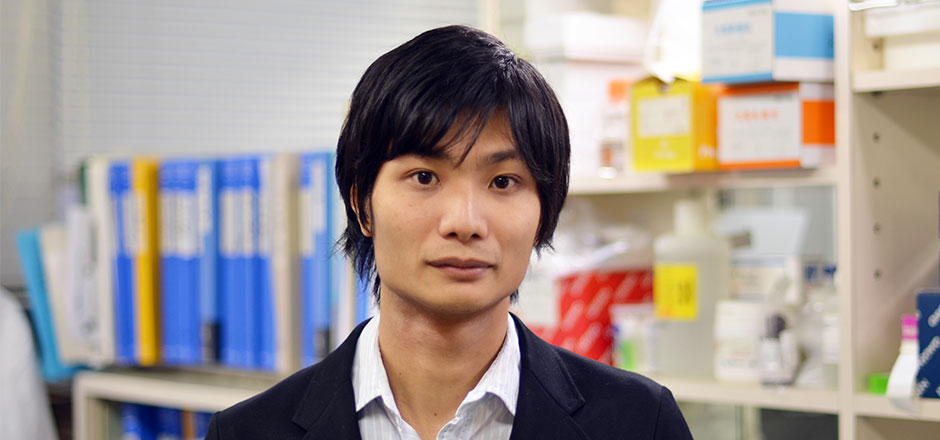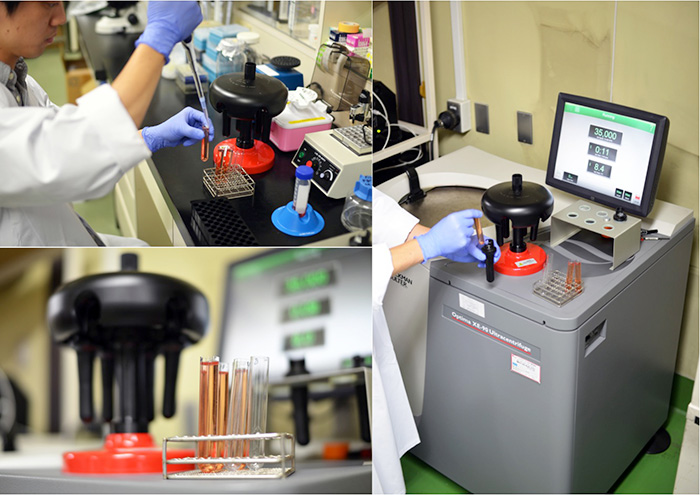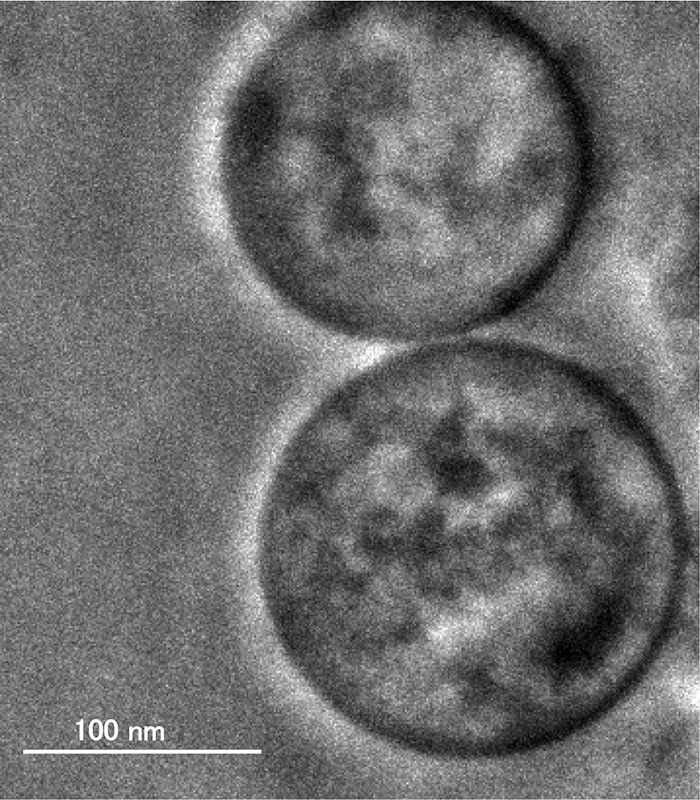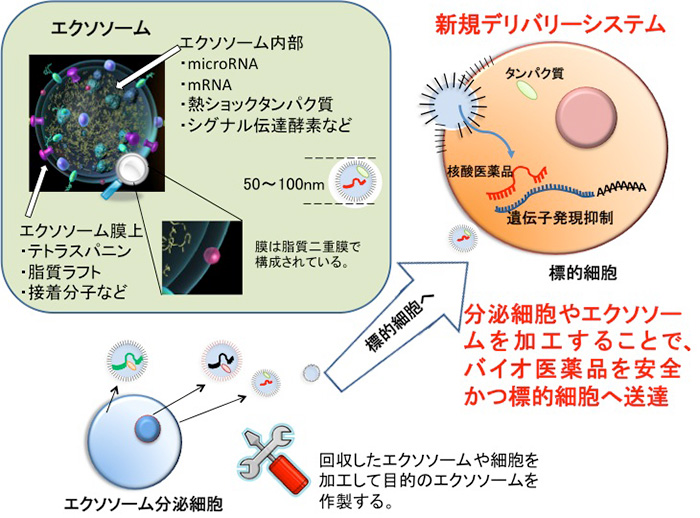<Figure1> Preparation of exosomes
We collect exosomes from cell culture medium or body fluids such as urine and blood by ultracentrifugation.
HOME > Research and Development Projects Adopted in FY2014 > Development of a novel drug delivery system using engineered exosomes
Project Leader:Yoshioka Yusuke
Research Fellow, Division of Molecular and Cellular Medicine, Group for Translational Research, National Cancer Center Research Institute

Currently, biopharmaceutical such as RNAi and antibody therapy is one of the most rapidly growing fields in drug development research. However, even though these drugs may have potential and strong utility, difficulty in delivering these drugs to appropriate organs or tissues remains a major impediment to their broad clinical applications. Therefore, the success of biopharmaceutical development is highly dependent on the establishment of drug delivery systems (DDS). We try to develop a novel effective DDS based on exosome which are small membrane vesicles (about 100 nm in diameter). Exosomes are secreted by all types of cells such as blood cells, epithelial cells and endothelial cells, and are also found abundantly in the body fluids. One of the main functions of exosomes is to transmit intracellular molecular messages through mRNAs, small non-coding RNAs such as microRNAs (miRNAs), and proteins including enzyme. In other words, exosomes may serve as a natural delivery system between cells. However, the precise mechanisms underlying cargo sorting into exosomes are still unknown. Furthermore, the precise mechanisms of cellular uptake of exosomes are also still unknown. There are reports that exosomes have a tendency to accumulate in specific organs or sells. Therefore, if we use exosomes for DDS, we have to reveal the precise mechanisms of cellular uptake of exosomes and develop techniques for exosomes modification. In order to deliver therapeutic oligonucleotides such as siRNAs or miRNAs via exosomes to a desired cell type, tissue, or organ, we plan to add (a) specific membrane protein(s) to exosome membrane and/or alter surface glycosylation of exosomes. Moreover, we have to load therapeutic oligonucleotides in to purified exosomes. We aim to develop a novel DDS based on exosomes which deliver biopharmaceutical to target organs or tissues in a safe and effective manner through this research project to help many people suffering from various diseases.

We collect exosomes from cell culture medium or body fluids such as urine and blood by ultracentrifugation.

Exosomes derived from prostate cancer cells were visualized by phase-contrast transmission electron microscopy. The size of exosomes is approximately 100 nm.

We aim to develop a novel DDS based on exosomes which deliver biopharmaceutical to target organs or tissues in a safe and effective manner.